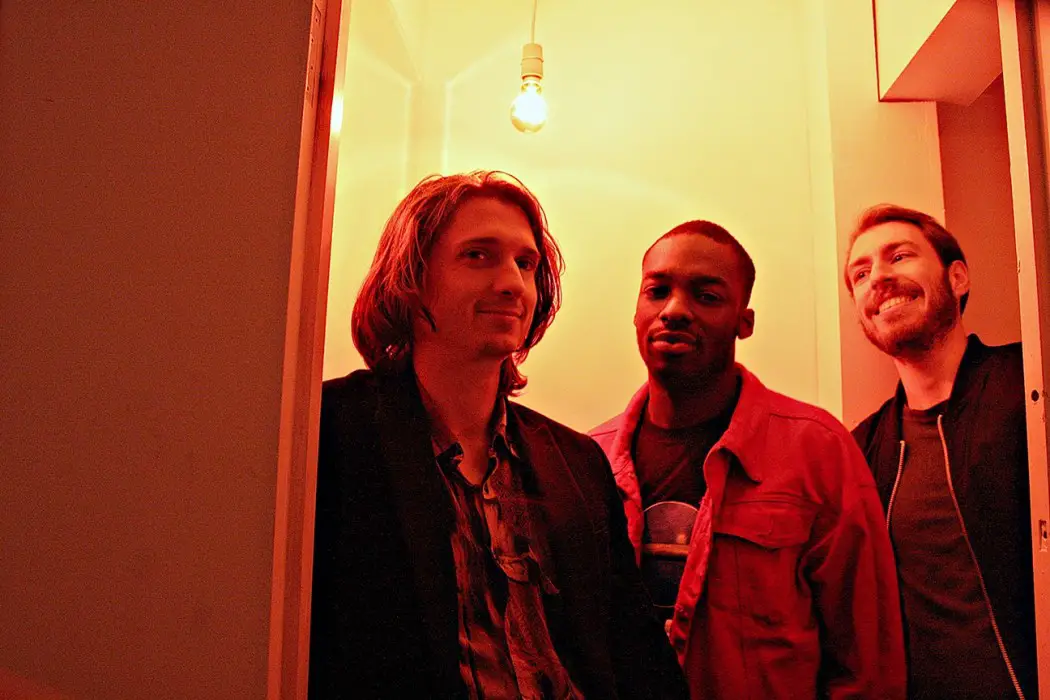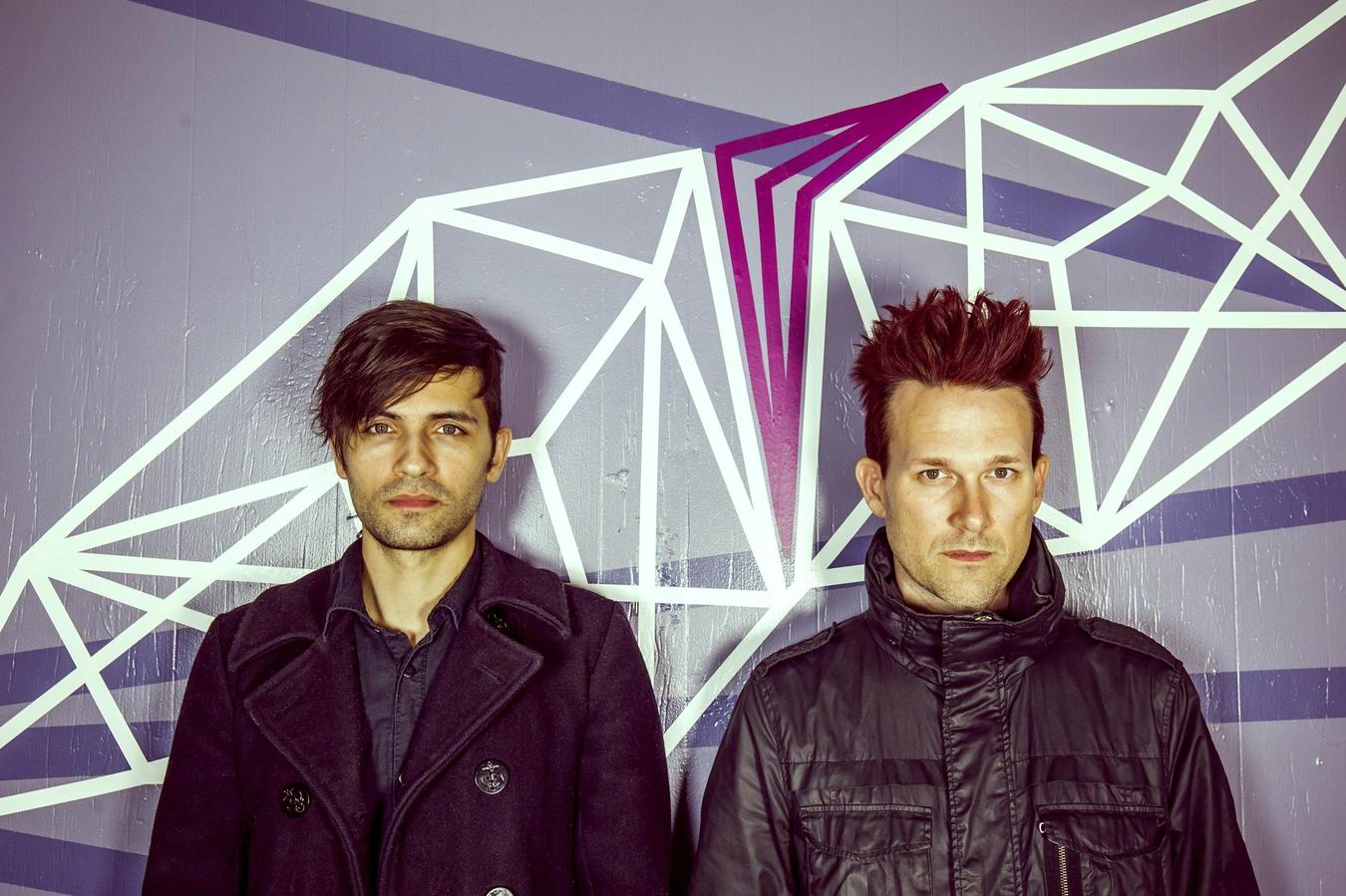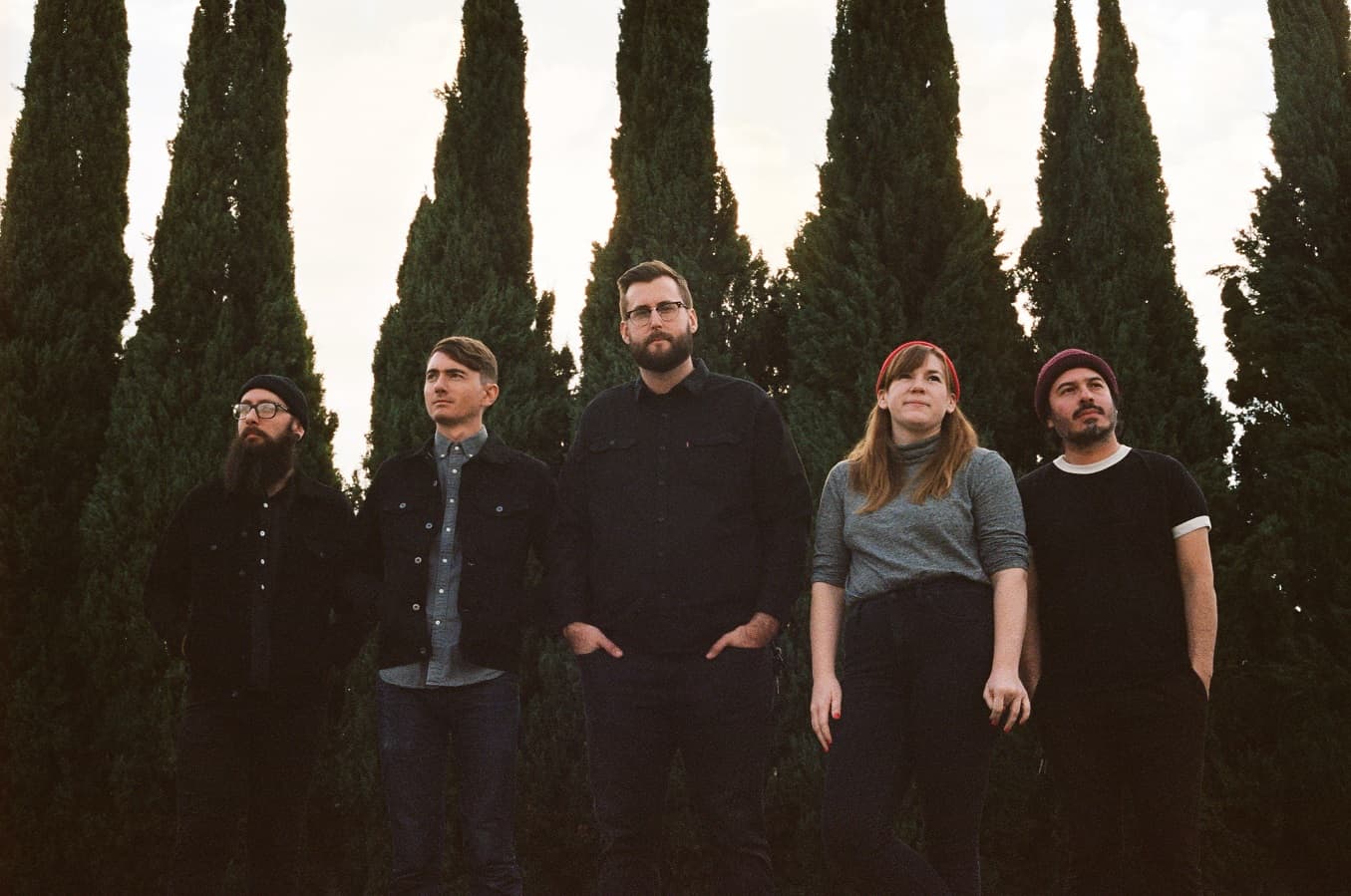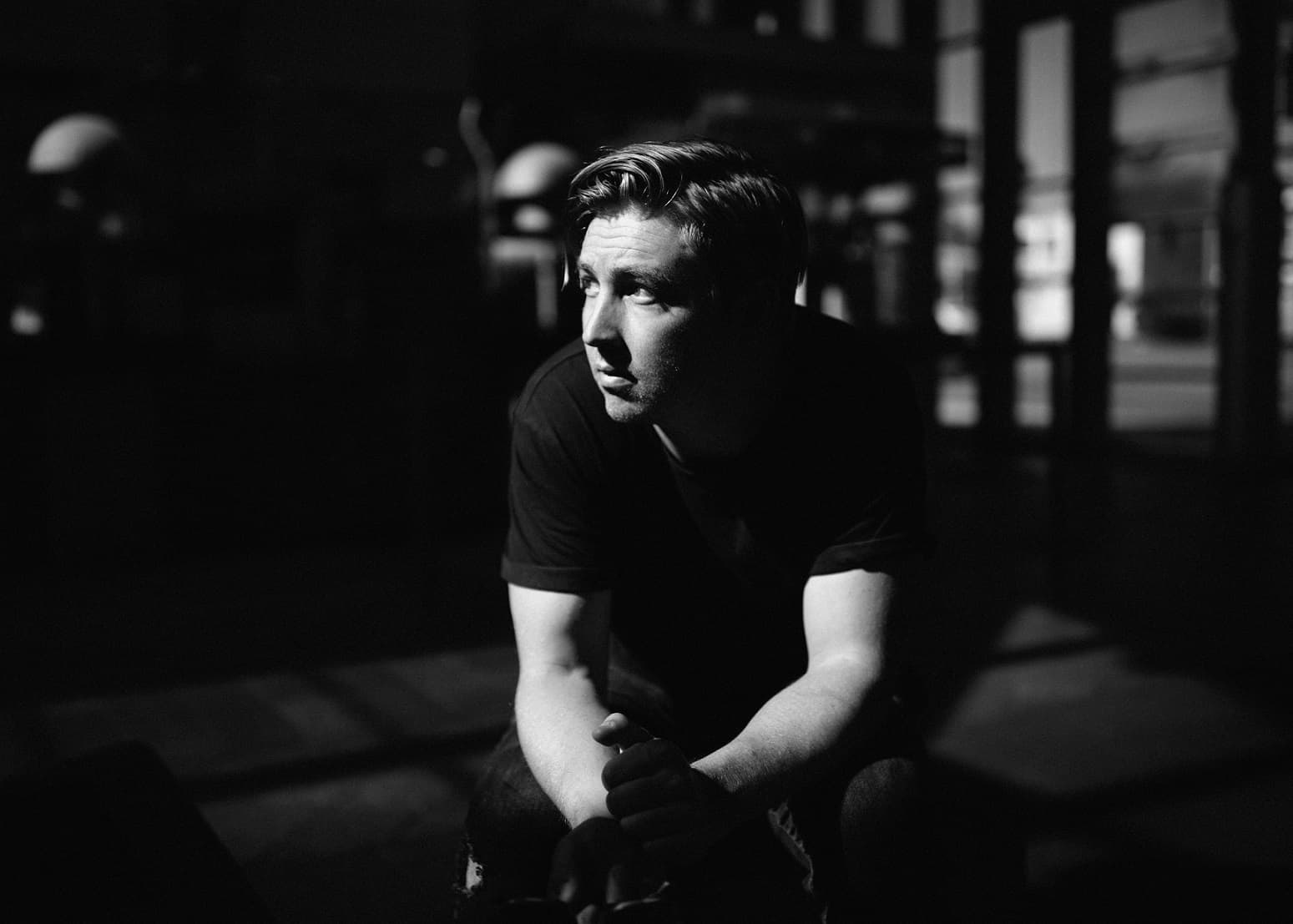Little Cub are a band that embraces tradition. It’s easily seen in the respects of their idols: From Morrissey to Sylvia Plath, the influences are endless, and though parts of these famous writers are captured in the band’s work, Little Cub’s repertoire is confidently stocked with something new. They have created a perfectly pop sound that challenges everything pop content has been known for thus far.
The London-based band, made up of Dominic Gore, Duncan Tootill and Ady Acolatse, have crafted the ideal dance soundtrack that exceeds the expectations of the genre by incorporating honest lyricism and socially-conscious content. The band’s debut album, Still Life (released today, April 28, 2017 via Domino Records), touches on everything from death and relationships to the world’s controversial political leaders and religion. It’s a jam-packed album when it comes to message, but the gravity of each topic is outweighed with a sly sense of humor.
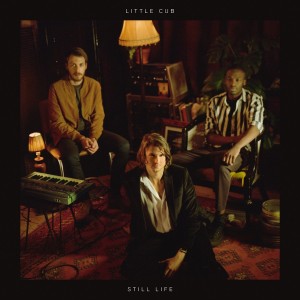
Gore finds his writing style to be lacking sincerity, something he explains as a cultural take on dealing with difficult situations. Instead, he writes with a satirical voice, painting issues in a different light from how publicly perceived.
This technique is beautifully displayed in “Hypnotise,” a statement-making satire piece challenging government, greed and societal norms. Gore’s creativity shines in lines like “I have a dream of students begging in the streets, they’re fighting over books like bits of meat,” and “If education is a right then it’s my right to simply soak it up and piss it all away.”
“Hypnotise” isn’t a typical rally tune, it’s a conscious effort to take a different view on a common topic. “I think one of the things I wanted to communicate with this was the idea that if the political leaders are a bit more complicated, maybe the person singing the protest song is a bit more complicated as well,” said Gore.
Watch: “Hypnotise” – Little Cub
[youtube=https://youtu.be/S3orBzl0Qpg?t=0s]
Though lyrically, the song makes a large statement, the instrumentals hold true to the band’s mission to create catchy, dance music. With a heavy drum beat, the musicality balances the message, keeping it meaningful, but never overwhelmingly political. Little Cub has found the perfect balance between creating music of social importance while still staying suitable for a dance audience.
The album’s first track “Too Much Love” is a humorous yet honest take on the little-acknowledged idea of “the hollow generation’s” problem with commitment and forming true relationships. It’s brutally displayed in lyrics like, “So if you’re counting that we all have a conscience, I’ll be hanging out with all of your friends, cause baby I put the con in confidence and I’ll only leave you down in the end.” Lines throughout the song hit as a realistic bite, making listeners examine the sensibility of the lyrical meaning in today’s society.
Much of the album continues in a similar light of satire and challenging societal behavior.
A glimpse of vulnerability shines through on “Snow,” a song written by Gore for his mother’s funeral. The song’s tune is somber, yet holds an indie-rock beat which refuses to give into the depressive nature of the song’s message. Lyrics on the track are heartfelt and kind, comparing tears to the snow of the winter in lyrics like “and it’s not snow glistening on my cheek.” The song shows another side to Gore’s writing ability and approach of heavy topics. This sense of sincerity is also touched on in “Death of a Football Manager,” a track about a suicide, in lines like “and though they said you were never great, in my eyes there was nobody greater.”
There are countless lyrical expressions on the album which solidify Little Cub as a poetic powerhouse. In fact, there are more lines on the album to imply that fact than there are lines which feel as melodic fillers. Little Cub’s way with words is beyond impressive. It’s immersive and thought-provoking at every angle, from satirical genius to heartbreaking moments of remembrance.
Altogether, Still Life is a lyrical masterpiece, experimenting with an incredible amount of topics, yet somehow, still feeling cohesive. The instrumentals on every track fit together in a strategically designed LP, an album that can be easily shuffled or thoroughly enjoyed as a start-to-finish artistic expression.
In Still Life, Little Cub have preserved a sense of pop tradition. There is no let down in the album’s musicality or danceability. But more importantly, this release is opening the door to a new form of creative expression. The idea of dance music as a social platform, let alone a humorous one, is still very much uncharted territory, yet this endeavor proves it can be done and can be done well.
Atwood Magazine spoke with Gore about his poetic influences, his take on politics in art and his reliance on satire.
Still Life – Little Cub

A CONVERSATION WITH LITTLE CUB
Atwood Magazine: I'd just like to start by forming some background on the band and ask how you guys got involved with music.
Little Cub: Well, we all were playing a bit I think. My parents were both musicians so I grew up in quite a musical environment. In terms of the band, we’ve been friends for a long time, probably 10 years. We only really started making music together relatively recently. Duncan and I met at a sort of jazz jam session in the town that we grew up in. We were probably the youngest people there by about 40 years so that was kind of how…we saw each other and I was like “we should probably hang out and be friends.” Cause I didn’t know anyone there. I was on some time away from being at school and Duncan was just about to move to the U.S. That’s how we met.
And then Ady and I met at Fabric which is a nightclub in London. I sort of saw him and was like, “I think we’re gonna be friends.”
I was sort of writing words like “poems” and that sort of thing, bits and pieces. I was also playing instrumental music. That’s all of our backgrounds: playing instrumental music. So I hadn’t really thought of putting those things together. When we did eventually decide that we did want to play some songs, the only people I could really think of working with was Duncan and Ady. I can’t really imagine making music with anyone else anytime soon.
The first song that we wrote, or that I wrote, I mean we write together, that’s our thing, but the first song that I wrote, “Snow,” which I wrote for my mum’s funeral a few years ago, that’s probably what made me think I could maybe write songs. After that we started a band and got going with it.
The sound of your album is very calm-rock but it has these electronic instrumentals. It's an interesting combination. What has drawn you to that sound?
Little Cub: Trial and error, really. The album is a reflection of how eclectic our music tastes are. As I said, we’ve all played more instrumental and esoteric music in the past, but the first music I ever heard or remembered hearing anyway, was either Ace of Base or the Pet Shop Boys. And I’m gonna go with Pet Shop Boys because if you’re familiar with the work of Ace of Base, they were a very popular Swedish electronic-reggae combo in the 90s, so I think, probably, the Pet Shop Boys. I remember being a big fan of them. That sense of melody and sound did impose itself on me from a young age.
Duncan is massively into electronic music. We do a lot of production and remixes, DJing here in London. Duncs worked on an album with George Fitzgerald a year or so ago, who’s an amazing electronic producer. So, we took a lot of those elements as well. We are all kind of multi-instrumentalists. It made sense that it had a lot of live instruments as well. It was just sort of bringing those things together. As I said, we all kind of like different things so we brought different elements from that.
And Still Life is the first album you're releasing, correct?
Little Cub: Yeah, that’s right.
How do you feel about that?
Little Cub: Excited. I think mainly excited now. You know, we put a lot into it and it’s one of those things where you’re sitting on it for a while, you know when you make a record, and it’s just exciting to get it out into the world and have them hear it. That’s such a big thing. And to play the tracks live. All the feedback we’ve had so far has been really good, so that’s positive.
Watch: “Too Much Love” – Little Cub
[youtube=https://youtu.be/MYSsyjnHXxY?t=0s]
What can you tell me about what the album means to you as a band? When it's out in the world, what do you want people to get out of it?
Little Cub: Obviously, the themes on the album are…you know, there’s some pretty heavy stuff on there. There’s stuff about politics, religion, relationships, football, X-Factor. There’s loads of diverse stuff on there, but I think we wanted to capture these sort of snapshots of our own personal lives over the last year or so. Very much what we wanted to communicate were our thoughts on how those things interfere or interact with our day-to-day lives. But I’m kind of wary of talking on a grand scale about anything. I think what works really well with records that I love is it’s usually people taking something very personal that you can relate to. We tried to do that. I guess you don’t necessarily expect everyone to like what you do, but I hope it’s just communicating with somebody who maybe will listen to this and go “Oh, I get that,” or maybe makes them feel a little bit better about their lives or gives them some ideas about things. A lot of the time the way I relate to songwriting is somebody communicating with you and making you feel a bit like decisions you’re making or the way you feel about your life is better, I guess. If we can have that kind of relationship with anyone, that would be incredible and the record has kind of served its purpose. Communication and the catharsis as well of actually making it, because like I said, there’s some heavy stuff on there, but also, we didn’t want to make a dour record. We don’t want to be seen as a depressing band. I hope there’s some joy to be found on there. Some fun. There are some bits that are going to make people dance and move.
I think now, a lot of people are making singles and that’s the focus. We’re massive geeks for the album and the long-play. That’s our background. We love collecting records. Very much we wanted to make something that’s in the tradition of the albums that we loved and grew up loving. So hopefully, if it adds anything to that cannon, that would be, again, pretty great.
You mentioned that some of the themes are pretty heavy. I feel like it comes off very light and almost humorous at times. Some of the writing has a real sense of humor to it.
Little Cub: Thank you, yeah. Absolutely. Maybe it’s a British thing, I’m not sure. I know it’s a cultural thing here that we have a very difficult relationship with sincerity, people who are overly sincere all the time. I’m a big fan of satire as a way of communicating heavy issues. We don’t really have it so much right now in the UK, but I know in the U.S. you’ve got The Daily Show and John Oliver. There’s more of a tradition at the moment of people using satire and humor as a way of explaining and also connecting with people on really heavy stuff. That’s something that was a big part of British culture for a long time. I do think we wanted to talk about some heavy stuff, but again, I do believe that is the best way of communicating some of those issues and having that dialogue with a certain amount of humor. And also, we don’t really take ourselves that seriously as people. I may be a bit of a blowhard sometimes, but I’m not gonna wander around with my heart hanging off my sleeve all the time.
We wanted to keep a certain amount of humor but also, I guess, again, it’s just in that tradition of the bands and things that we like have that sort of mixture of heaviness and then the lightness of touch. It gives a much more three-dimensional picture because even if you are sad or angry, dealing with whatever, nobody feels like that 24/7. You have waves of these things. Sometimes these things are really overwhelming. Sometimes you have a certain amount of distance. Sometimes you have a different attitude towards it. I think we wanted to reflect the wide range of experience of how we experience those things. So yeah, nothing too relentlessly heavy.
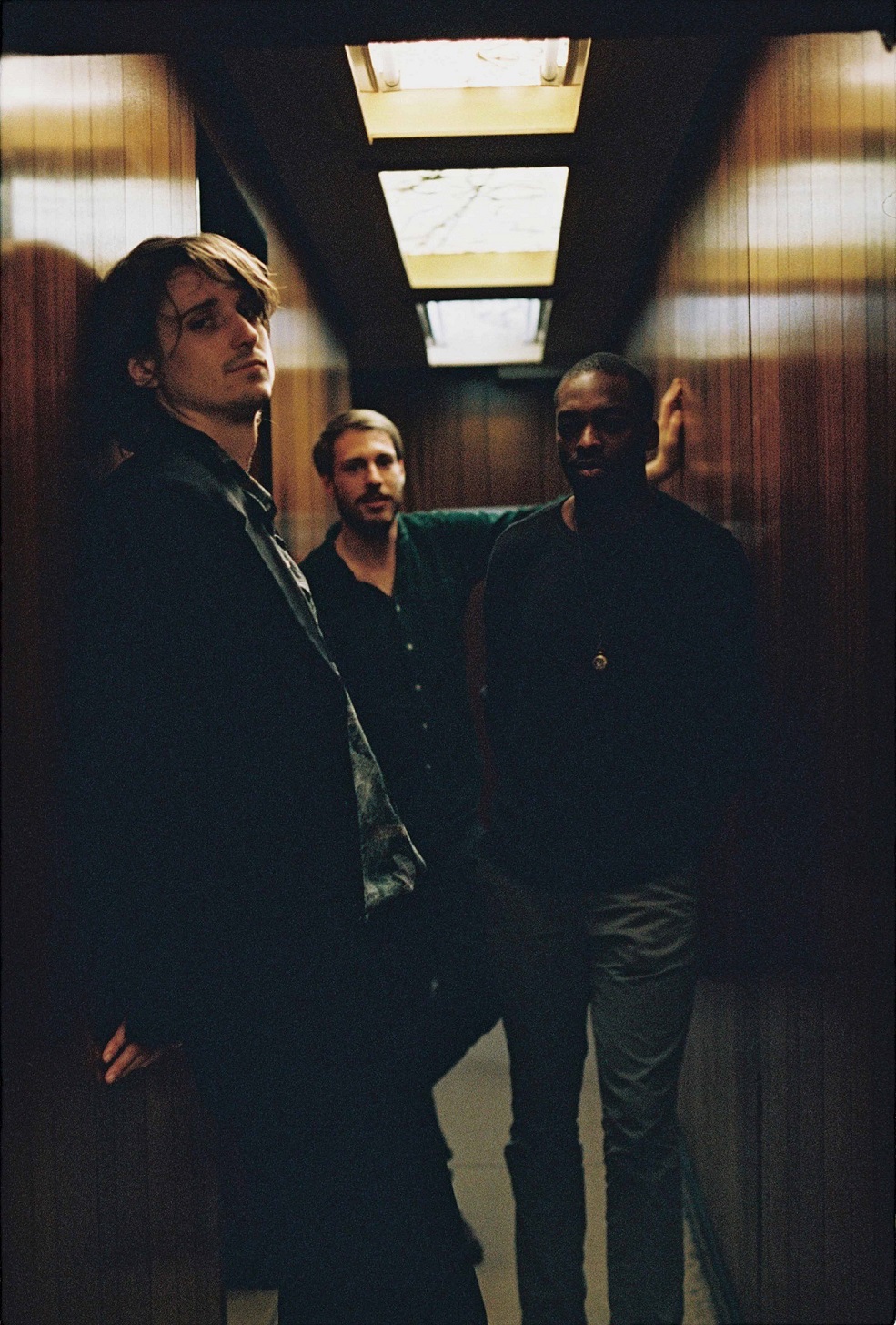
Yeah. And at the same time you really do hit on some bigger concepts. You talk a lot about, particularly in your song “Hypnotize,” it's very politically driven, challenging the class system and society's political standpoint in general. Can you tell me a little bit about writing that song?
Little Cub: Yeah. Well, again, it comes back to the sincerity thing. I wanted to write something political because, particularly now, it’s almost impossible to get away from that stuff. A lot of people have commented on how unusual it is to write a political song, but I think right now if you switch on your social medias or anything, there’s so much political stuff going on and so many people are talking about it very openly. To just ignore that and focus on the traditional songwriting tropes feels a bit weird to me, like unrealistic. At the same time, I know that part of the reason for that is because a lot of songwriters feel uncomfortable with, certainly songwriters that I respect, with the overly-sincere approach to dealing with political issues.
So, with that song, what I was trying to put across was that you can engage with that without having to write a sort of heart-on-sleeve, out-and-out protest song. These issues are much more nuanced than just “fight-the-man.” Now, we’ve got a situation where, maybe, the guys who are a little bit hate-figure, essentially, are a bit more two-dimensional. If you’re talking about certain political leaders, they’re starting to paint themselves as a sort of caricature of the evil empire again now. For a long time, we had political leaders who maybe were harder to gauge where they sat on the spectrum. I think one of the things I wanted to communicate with this was the idea that if the political leaders are a bit more complicated, maybe the person singing the protest song is a bit more complicated as well.
There’s a great thing that Mark Fischer talked about in his book. I’ve referenced this quite a few times because he was an incredibly important writer in terms of shaping my way of looking at these things and for a lot of people. He was saying that a lot of the time, a feeling of being complicit in the system or hypocrisy stops people from speaking out about issues. So, if you feel like you are partly responsible for why things are a certain way, or you don’t understand the issue as well as you’d like to, maybe you won’t say anything because you’ll feel like there’s so many areas you could be called out. If you look at social media now with things like public shaming on Twitter, if you say something and then maybe later it’s found out that maybe you get it slightly wrong, that can be incredibly embarrassing or actually worse, can be really damaging for your life. I think a lot of people who maybe should be talking out about these things are afraid to do so in such a public forum such as writing a song.
So the other side of it then was that I wanted to write this song that was engaging with the political system that was saying “Look, this stuff is F-ed up,” but at the same time “I’m not a perfect individual. No one is beyond reproach.” But that beyond reproach idea is what holds back a lot of the most interesting people from getting into politics. There’s a big thing that if you want to be a politician in the UK, you can’t talk about doing anything in your youth that is probably relatable for lots of people out there. Whether it be drinking or drug taking or whatever it might be, if you in any way indicate that you may have been near somebody who was associated with that in the past, that can be incredibly damaging for your political career. That just seems very unrealistic of people’s experience.
The final thing that really made me thing “Do you know what, we could do this,” was that Smith’s song “Still Ill.” The first line of that about life is “simply taking not giving, England is mine it owes me a living…” that to me is a perfect example of satire in songwriting. Rather than saying to somebody, “Look, MPs are bad, yeah, they’re evil over there, fight the man, fight the system,” I thought it was much more interesting to present an idea of somebody that is maybe slightly obnoxious, like a Morrissey-type figure in that song. Actually, a lot of the time, I think the best way of getting people to think about their political opinion on things isn’t to say to them “You should think this.” It’s to offer them something that maybe they don’t like and they go “I don’t agree with that,” and then that makes them reassess what they think about politics. So, throughout the course of the album there are a lot of times I say things that are a little bit on the nose, but they are designed to firstly, make me look slightly ridiculous, which I am as a human being in terms of posing and the nature of being a performer, pop singer, whatever, has a certain amount of absurdity inherent within it, but then also, to make people think about what they think about those things and whether they agree or disagree. I think that kind of engagement, that’s how you communicate lyrically at least with people.
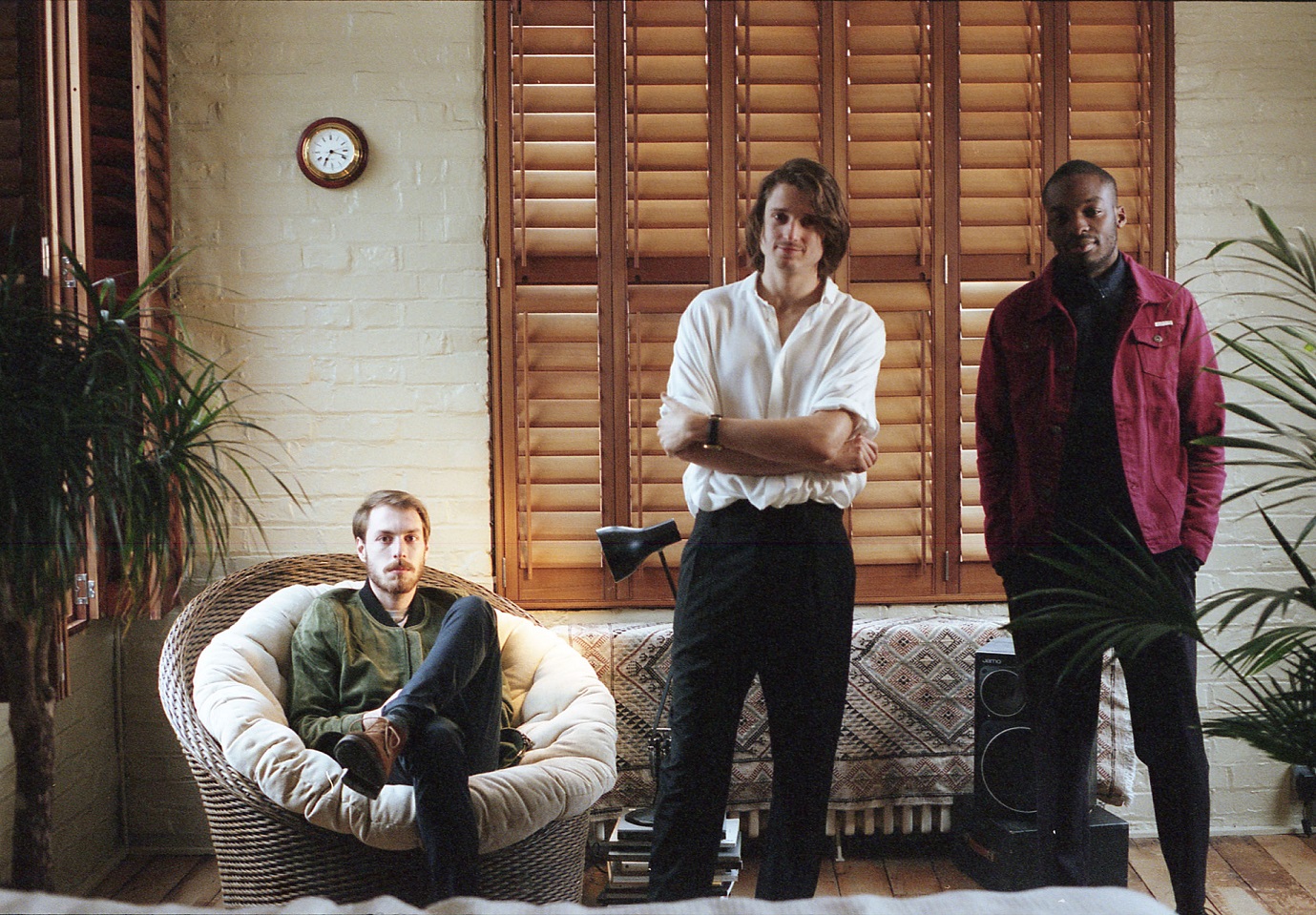
And I understand that a lot of the writing on your album, as I think you mentioned a little bit before, was inspired by poetry and your writing poetry. Can you tell me a little bit about where you found that inspiration and how you decided to translate it?
Little Cub: Yeah. Well, again I treat a lot of my literary references with a certain amount of…I know talking about poetry and some of the issues and the way that I engage in politics and things like that can seem a little bit, yeah, pretentious maybe to certain people. Again, it’s a very British thing to not really want to wear your heart on your sleeve too much. I keep saying that, probably like the fourth time now, but you get the idea. It is that sort of self-awareness which is really inherent in my and our approach to everything. We love playing with the tropes of being in a band and one of my favorite points of reference with a lot of bands is the relationship between poetry and song lyrics. A few years ago I spent quite a lot of time meeting a lot of my favorite poets and grilling them about that topic, which most of them hated, to be honest. I got some pretty rude responses from people that I was a big fan of. That did teach me a valuable thing about it. They are very different art forms. If you look at someone like Leonard Cohen, his approach to writing poetry, I mean, his songs are poetry but as soon as you put something in a musical context, it means more than just the words. On top of that, the words mean something else. I’ve got a lot of my favorite songs where I think “wow, this is an incredible lyric.” But when I put it in context of the rest of the song, or the rest of the lyric even, maybe it doesn’t mean what I thought it did when I heard it. Whereas, because poetry is primarily a written art form, you can kind of analyze what’s going on when you’re reading it whereas when you’re listening to a song, maybe you’re not listening to all the lyrics, you just engage with one line. Jarvis Cocker did a very interesting couple of talks about whether poetry and song matters or doesn’t matter or not poetry but lyrics, whether lyrics matter. He was like “They both matter immensely, but they also don’t matter at all because there’s lots of examples of both songs that have terrible lyrics or they have a lyric that means something because of where it’s placed in the song but maybe taken out of context it doesn’t matter.”
However, that being said, a few years ago that singer from Friendly Fires, Ed, he said something about wanting to make…he said it didn’t really matter what lyrics you put over dance music. The nature of dance music takes people into this transcendental state, so you could say something quite inane but actually, because of the medium it’s delivered in, it becomes this incredibly powerful sentiment. I guess always thought if that was the case, maybe if you took something that was really well thought out and you expressed it over dance music, maybe that would be an even more powerful way of communicating with people. I thought about that a lot.
In terms of my own background, the reality of it is that I wasn’t massively a poetry fan when I did it at school. It didn’t really do anything for me. But there are certain poets that have, for one reason or another, particularly found me at certain points in my life when I needed it. That is the doorway into that stuff. Lots of people like Philip Larkin, but when I was going through the stuff with my mum and the aftermath of that reading, I knew “This Be The Verse” and a few of his more famous university favorites, but when I heard that poem “Aubade” which is about him kind of musing on death…it’s a pretty heavy poem to read but that really expressed something for me which I hadn’t been able to communicate with people before. I was having conversations and people were telling me all of the reasons why you don’t need to worry about this stuff or why whatever, and he very succinctly explains in that poem why those arguments don’t work. I was like “This is incredible.” And his writing style, it’s not like…if you listen to him reading his poems, it’s just like listening to somebody talking. You don’t really hear the meter as such. That really opened my eyes to the medium and to the possibility of what you could do with that.
And then on top of that, I was working at a bookshop and I was running this poetry section there. So I was having to engage with people about poetry and the great thing about working in a bookshop, as you may know, is you’re surrounded by books all the time and they’re constantly sort of speaking to you. Even if you can’t actually read them, the book is a physical object. It has this, in the same way that vinyl does, has this way of communicating to you so when you look at it, you have a relationship with it. That can be very powerful and stimulating without you even having to open the book. So like those Faber covers that are so famous, they’re very iconic and they do communicate with you. There’s a sort of mysticism to all these names and people who maybe you’ve heard people talk about but you don’t know about.
I guess the final thing, maybe, was how we put the things together. We’ve tried various ways of writing on the record. There’s certain songs where the lyrics came first. Most of them came from things I’d already written lyrically and then we put them over instrumentals or we put them to music and we improvised things and I read them or tried singing them over the top. I think, again, I was very influenced and interested, and we all are to an extent, by songwriters who use slightly longer lines. Obviously, I’ve mentioned Jarvis Cocker and I’ve mentioned Morrissey. Both of them explore with actually very long lines which you could stretch into the various poetic meter and rhyming structure quite easily. That really made me start to think about how you could use those forms over music. We’ve done that a fair amount with these songs. There’s other songs which you may hear at another time, that are more strict with the way I approach that, but yeah. That was a big thing.
Also, my friend Jimmy, he’s a massive influence on me in. He’s an incredible poet and you know, I know a few but I’m only gonna mention him because he’ll love this. But he’s somebody who keeps me on point with those things. If you’re making songs, sometimes you think “Oh, I’ll get very influenced by that tradition, and I am very influenced by that tradition primarily,” but he’s a huge Arctic Monkeys fan, but he’s also an incredible poet, so we talk a lot about the relationship between those two things. I guess it just felt quite natural to combine them once I started thinking about it.
Watch: “Loveless” – Little Cub
[youtube=https://youtu.be/WHC6-Vxdudk?t=0s]It sounds like it was a very fluid connection from your reading poetry to the way you decided to write. Is there a lyric you've written that sticks out as your favorite?
Little Cub: There’s lots of lines individually which I love on the record. Weirdly, my approach to the lyrics is that they do slightly change over time. So if you come and see us live, which hopefully you will soon, some of the lyrics have changed slightly, and they do change. Even though the songs are like snapshots of specific time periods, we don’t update them as such, but they evolve slightly. The way we play them evolves and so the way that I approach the words changes ever so slightly. If you write an idea, maybe you’re sitting on that idea for a while, but when you do it again in the future, maybe your opinion on it or your attitude towards it has changed. There are little subtle inflections in the way that I say things. One of the things I really like about Morrissey’s approach to those things is that you notice when he performs his songs, he does change the lyrics sometimes. And I think that’s really important to keeping a song feeling vital.
There’s a few one-liners on there that I’m reasonably proud of, but I might just let you pick those out. There’s a few that people tend to focus on in interviews. In terms of a whole lyric that I’m really pleased with, I’m gonna say “Death of a Football Manager.” It’s not the most personal song on the record because usually with the tracks, I very much write from a very personal perspective. With that one, because the song is about suicide, another nice jolly topic for you, I didn’t want to approach it straight up from my experience. What I wanted to do was talk about it from my relationship to how it’s affected people that I have a huge amount of respect for, my heroes, and how that relates to me. There’s references to Sylvia Plath, there’s references to Alexander McQueen. There’s references to Ian Curtis. There’s references to the football manager in question. I’ve sort of mingled that with various things that are more personal as well. All of my lyrics are probably slightly…you know a lot of work goes into the lines and what they mean and why I’ve put them there. Occasionally, there are times I’ve sacrificed the melodic flow of the line in order to make the words work, you know. With that song, every line very much has a deliberate, at least one meaning to me. So in terms of a piece, it might not be my most elegant one, but I mean I could show you the books of notes that went into making that. That one I’m very proud of.
Nick Cave said this thing about when he writes a song, the song carries on existing before and after the song is finished. I really like that idea that even though these are all personal moments, all of the notes and the thoughts and ideas that exist around that idea are still out there developing. So sometimes you tap into…like I said, the song is developing live, I’ll tap into those things. But the idea is that they’re not just a completely static piece. It has this sort of life and animus to it.
It almost makes the song a different form. It's not just something to preserve a memory...I don't know to...keep transforming. It's a really cool concept.
Little Cub: Thank you. Yeah, exactly. It’s just how I relate to it really. Maybe it’s because we’ve all played instrumental sort of improvised music in the past. Duncan is an incredible improviser in many different styles but in a jazz style. We’ve all played that kind of music. Our approach very much is to see where something can go. A lot of the interest in doing remixes and dance music and the re-edits that we did for the EPs is just because we wanted to try out some different ways of approaching the material rather than just going “This is the finished song. It will always be like this.”
A friend of mine told me that when Radiohead toured festivals a year or so ago, they told me they saw them repeatedly and they played the set not only different song, but the arrangements were completely different every night. They were sort of like “How on earth did you even have time to do that?” Obviously, we’re not changing the arrangements completely every time, but we wanted it to have this life and movement to it. I think that’s really important. Like LCD Soundsystem. I think they have that incredible way of things kind of changing and evolving as they’re playing. That’s something that I think is very much a part of dance music as well.
I think that's really important for fans too. If you have people coming to your shows continuously, they're never going to get the same show twice which keeps the experience new and exciting.
Little Cub:Exactly.
Alright, my last question is what can we expect to see from you next?
Little Cub: Good question. Well, the main thing we want to do now is get out there and play the music to people. That’s a big thing. We’ve done a lot of time in the studio, and we continue to do that. We have a good way of working and making stuff here. But what it’s really about now is getting out there and communicating with people directly, face to face, letting people see what we’re trying to achieve in a live sense. The thing that’s really interesting about the process of putting out a record, or it has been for me, is seeing how people’s expectations of you develop from when you release the first bit to when you release say an album. What the band is, you can tell people what the band is or think you’re telling people what the band is. But what the band is is dictated by the listener. David Lynch said this thing about how the least interesting view of a work is often the artist’s. We have an idea of what we think the band is, but what’s really interesting is getting it out to people and having them say “Oh, it’s this,” or “Oh it’s that.” A lot of people think we’re three boys playing a laptop. That was the perception I think when we first started putting tracks out. That’s not what it is at all live. It’s more of a band thing. We have a lot of instruments and we play it in a very physical way in that tradition. So it’s sort of playing with those expectations. We’re gonna play a lot of festivals, do a big tour at the end of the year I think, just play as many shows as we can and sort of see how people react to it.
Then, we’re gonna carry on making music. We’ve got some collabs that we’ve done. We’ve got some remixes that we’re doing, or have done. We’ve got some more music that we’ve written which I will imagine you will see dripping out over the course of this year. I guess beyond that just sort of see what happens really. We’ve fairly sort of humbled as people if I do say so myself, but the main thing is just now engaging with people. We’ve spent so long it just being the three of us and it being very insular to kind of now speak to lovely people like yourself and play it to people who have heard it and liked it. It’s a very special thing for us.
:: stream / purchase Still Life HERE ::
— — — —
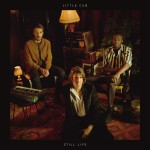
Connect to Little Cub on
Facebook, Twitter, Instagram
Discover new music on Atwood Magazine
cover © Holly Whitaker

